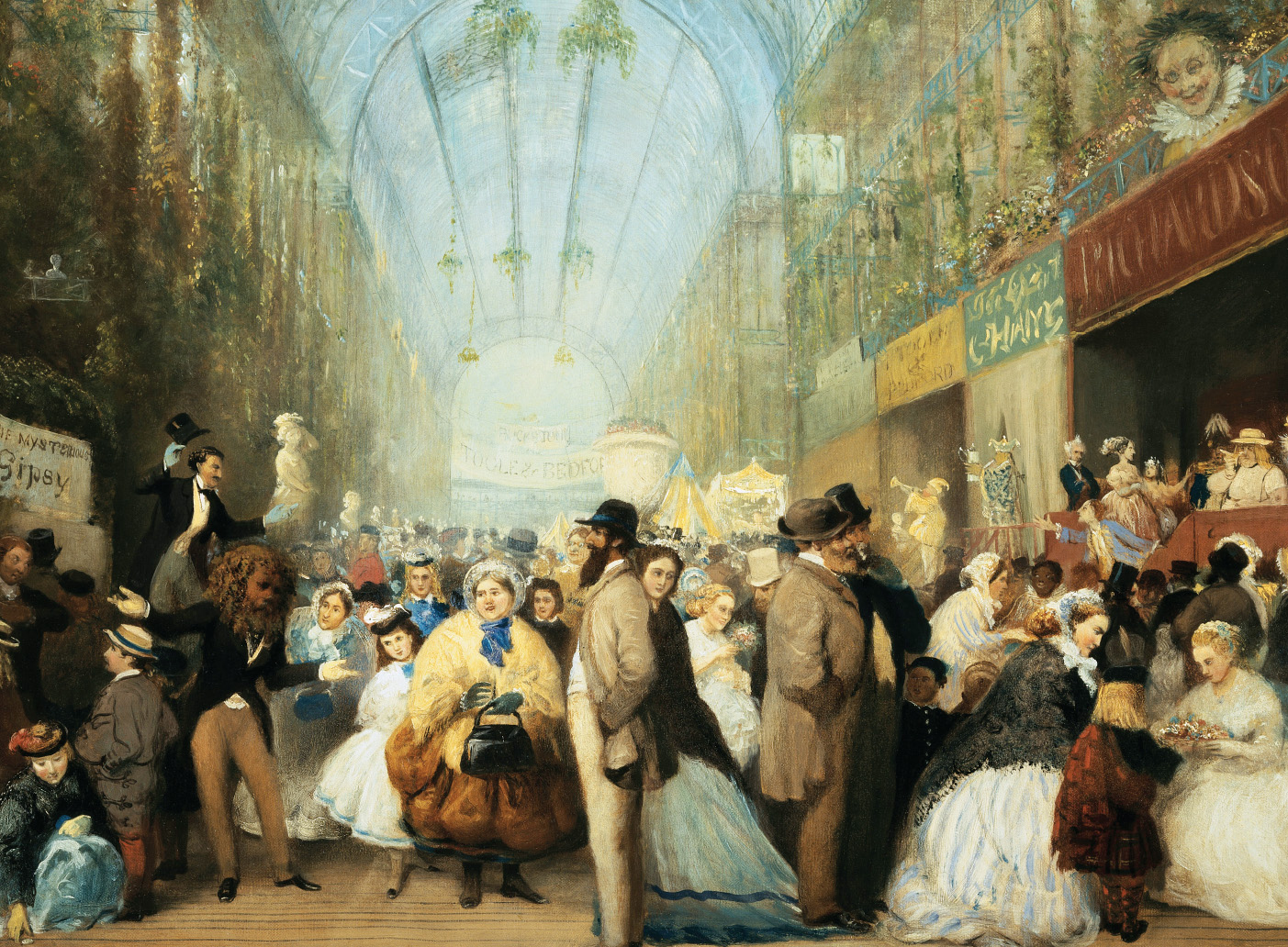A History of Western Society: Printed Page 716
A History of Western Society, Value Edition: Printed Page 722
Life in the Emerging Urban Society
1840–1914
When Londoners gathered in 1860 at the Grand Fete in the Crystal Palace (see painting on right), they enjoyed the pleasures of an established industrial urban society that would have been unthinkable just sixty years earlier. Across the nineteenth century, as industrialization expanded exponentially, Europeans left their farms and country villages to find work in the ever-growing towns and cities. By 1900, in much of developed western Europe, more than half the population lived in urban conglomerations, a trend of rural-to-urban migration that would spread and continue across the twentieth century.
Despite the happy faces in the London crowd, the emerging urban society brought costs as well as benefits. Advances in public health and urban planning brought some relief to the squalid working-class slums. On the whole, living standards rose in the 1800s, but wages and living conditions varied greatly according to status, and many urban residents were still poor. Differences in income, education, and occupation divided people into socially stratified groups; rather than discuss “the” working class or “the” middle class, it is more accurate to speak of “working classes” and “middle classes” and consider the blurring boundaries between the two. Major changes in family life and gender roles accompanied this more diversified class system. Dramatic breakthroughs in chemistry, medicine, and electrical engineering further transformed urban society after 1880, and a new generation of artists, writers, and professional social scientists struggled to explain and portray the vast changes wrought by urbanization. ■

CHAPTER PREVIEW
How did urban life change in the nineteenth century?
What did the emergence of urban industrial society mean for rich and poor and those in between?
How did urbanization affect family life and gender roles?
How and why did intellectual life change in this period?
Chronology
| ca. 1840s–1890s | Realism dominant in Western literature |
| 1848 | First public health law in Britain |
| ca. 1850–1870 | Modernization of Paris |
| 1850–1914 | Condition of working classes improves |
| 1854 | Pasteur begins studying fermentation and in 1863 develops pasteurization |
| 1854–1870 | Development of germ theory |
| 1859 | Darwin publishes On the Origin of Species by the Means of Natural Selection |
| 1869 | Mendeleev creates periodic table |
| 1880–1913 | Second Industrial Revolution; birthrate steadily declines in Europe |
| 1890s | Electric streetcars introduced in Europe |